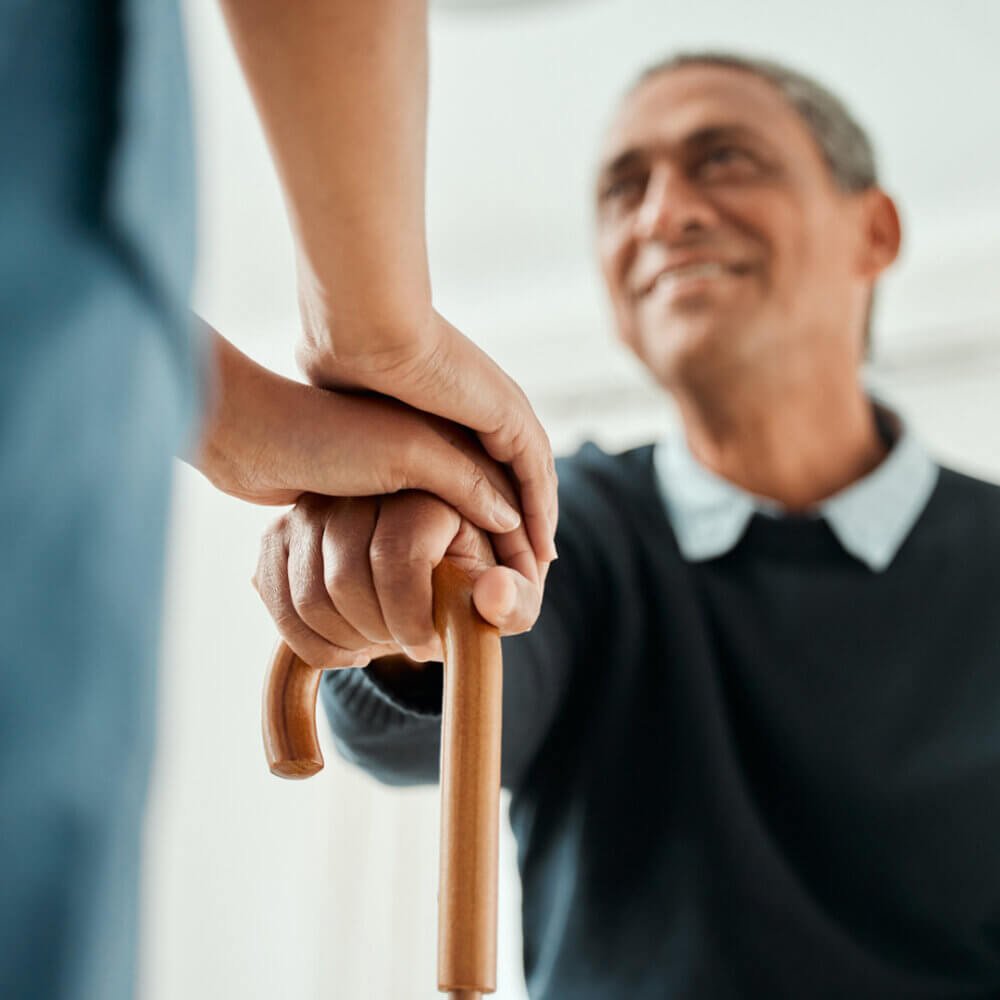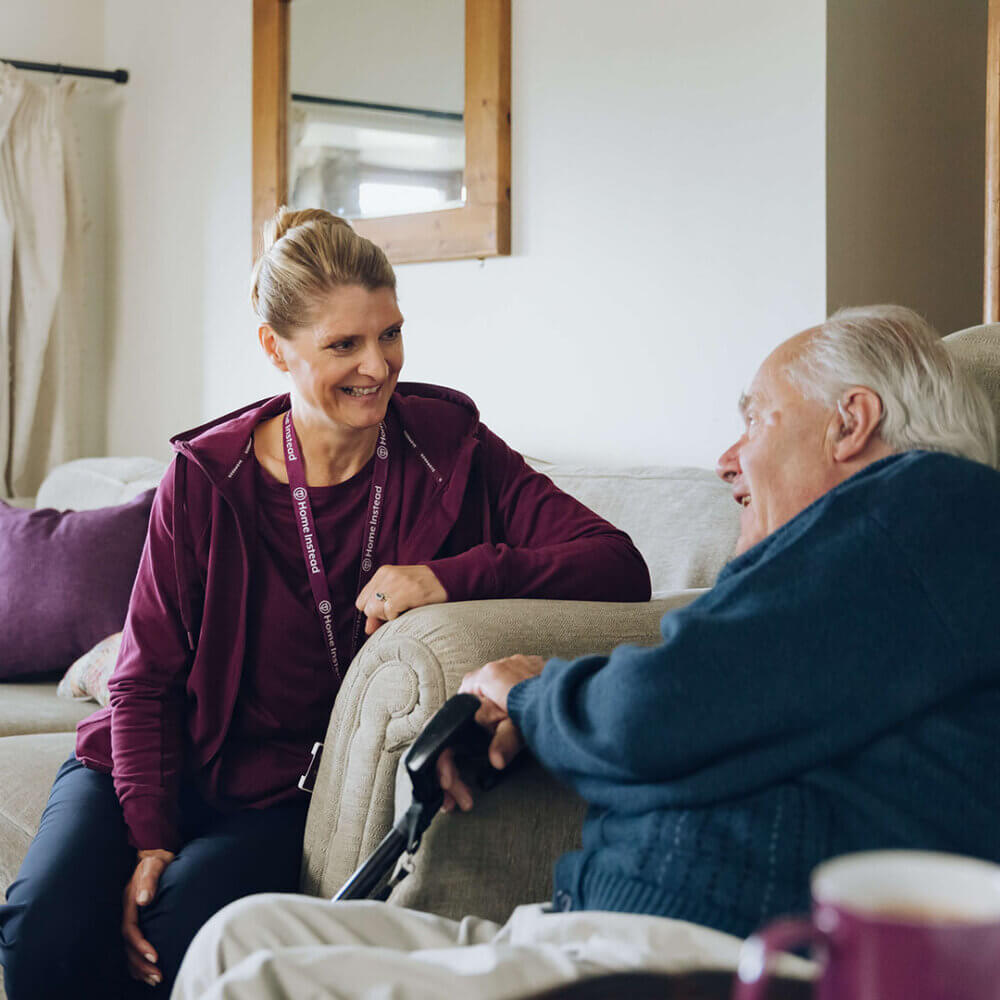Elderly Falls And The Connection To Muscle Strength
Elderly falls are a significant worry in senior care—but did you know they can commonly be attributed to a decline in muscle strength? Here's what you need to know.

Understanding How Muscle Ageing Increases Elderly Falls
As we age, our bodies change. We witness this in silvery hair, smile lines, and a general slowing down. What we don’t notice is what’s happening inside our bodies. Muscle decline is one factor that poses a significant risk in elderly falls.
To use a medical term, muscle ageing, or Sarcopenia, will happen to everyone. In fact, it is estimated that 5-13% of people aged 60-70 years and 11-50% of people aged over 80 years have Sarcopenia (Christoffer Bjerre Haase MD et al., 2021.). Specialists suggest that it is one of the important causes of frailty and hospitalisation among older adults. And it increases their fall risk in two distinctive ways.
- Muscle Mass And Skeletal Strength Decline
As you age, you experience a loss of muscle mass, which can affect your strength. You simply don’t have the power to do the things you once did. Walking becomes more challenging, as does sitting down and standing from a seated position or grabbing things.
The loss of skeletal muscle function, particularly strength, can mean seniors are more prone to falls and fractures (Avan Aihie Sayer, Alfonso Cruz-Jentoft., 2022). It can also be the cause of continued falls.
- Balance And Gait
Often, the first signs of a drop in muscle mass and skeletal strength are in your balance and gait (or your walking pattern). You will notice your loved one taking smaller steps or “wobbly” steps as they try to readjust for where muscle strength is failing them. They may also sway ever so slightly.
Changes in gait that are affected by muscle strength are a major reason seniors slip. And why they fear falling (Rodrigues F, Monteiro AM, et al., 2023). It is also one of the reasons seniors stay in the hospital longer after falls. They simply cannot be discharged if they do not have the strength or care facility to cater to strength loss.

Elderly Falls: Preventative Measures You Can Take At Home
The good news is that you can take some preventative measures at home. Keeping Mum or Dad feeling confident means they can be independent for far longer than they first thought.
Nutrition
Calcium, Vitamin D, and proteins are crucial in building and reconditioning muscle and bone strength. Incorporating these into a healthy diet is a powerful way to prevent the onset of muscle ageing. Supplements and protein shakes can also be beneficial in some cases.
Exercise
Regular, moderate exercise, or more importantly, consistent movement throughout the day, is vital to preserving muscle strength. Whether it’s walking, water aerobics, weight training, tai chi, or yoga, it is crucial to keep moving. If mobility is a challenge, chair exercises can be a great option. Here’s an NHS guide to get you started withchair exercises at home.
Assistive Aids
If your loved one needs help steadying themselves, there are assistive aids. Try riser beds or chairs, grab bars in the bathroom or by the front door, or walking frames or sticks. What you are looking for here is an aid for independence and ease of movement—a chance to recondition and build on muscle strength.
Disclaimer: Please speak to a GP before you make radical changes. You must ensure that the changes align with what’s best for your loved one’s unique situation.

Elderly Falls: How Home Care Can Help
Alongside what you implement at home to avoid falls relating to muscle ageing, you could try Home Care. What is Home Care? Home Care is the provision of private care professional services in your home.
Home Care services have been specifically developed to provide assistance in senior living situations. That means you have someone trained to help you deliver meal plans and cook nutritious meals. You could also have someone who can institute movement activities, moderate exercise and physical therapy based on your loved one’s current health status. Home Care can also provide personalised supervision and medication monitoring to signal fall risks and mitigate the effects.
More than that, they can provide companionship—something we strongly advise here at Home Instead. Companionship isn’t just about keeping social and avoiding isolation; it’s also about removing the stigma of ageing so that Mum or Dad can feel comfortable discussing their feelings about getting older and retaining their independence. This is vital if we want them to be more open to discussions and positive towards change.
How Home Instead Watford Is Tackling Elderly Falls
Here at Home Instead Watford, we recognise that elderly falls are a concern for every one of our clients as they get older. We also recognise that you need more help understanding how widely falls can affect your loved one’s quality of life. That’s something we want to change.
Our expert Home Instead care professionals deliver Home Care daily to Watford, Bushey, Northwood residents and surrounding areas. We constantly look for fall risks as we onboard new clients and visit our existing families. We call this our “Fall Prevention Program”. We let you know what we’ve found and what long-lasting fixes look like.
We also offer free fall risk assessments to non-clients—that could be you! These no-obligation assessments come with a full report to help you understand precisely where Mum and Dad might need help. It could be as simple as providing assistive devices or suggesting chair exercises. The power behind this tool is empowering you to understand where fall risks lie and what you can do about them.Find out more about the free falls assessment here.
Beyond that, our team is putting together a detailed selection of fall prevention guides. Here is what we have published so far:
We also have lots more for youon our podcast.
